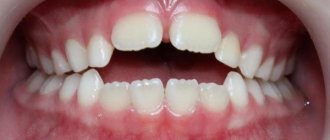When should a child start speaking in sentences?
Normally, the formation of speech in a child goes through several stages: screaming, humming, babbling, and already from 11-12 months of life the baby begins to utter his first words. He begins to associate words with objects in the environment, words are filled with meaning for him. By this time, the child has already formed an active (from 3 to 10 spoken words) and passive (up to 20 understood words) vocabulary. By the age of 1.5 years, the vocabulary increases to 40-70 words, and at 2 years the baby already uses from 150 to 300 words. On average, at the age of 2 years, a child begins to speak in sentences. At first they consist of two words (mama give, lalya boo, etc.), and then of three or four.
Of course, each child develops strictly individually, and there may well be minor delays in the development of speech functions, which are not yet a deviation, but depend solely on the child himself, his temperament or heredity. But if you observe that your child does not speak in sentences for quite a long time, or he has missed previous stages of speech formation, this may indicate a delay in psychospeech development (DSRD).
Delayed psycho-speech development
There are quite a few reasons for the development of ZPRD, among the most common:
- Illness of the mother during pregnancy or difficult childbirth;
- Intrauterine hypoxia of the fetus, trauma to the child during childbirth (trauma of the cervical spine and/or central nervous system);
- Serious illnesses suffered by a child at an early age;
- Psycho-emotional trauma at an early age;
- Unfavorable family environment or improper upbringing (beatings, quarrels, lack of love and care on the part of parents or, conversely, excessive care).
In addition to the fact that your child over 2 years old does not speak in sentences, symptoms that also indicate the presence of delayed speech development are:
- limited vocabulary (up to 3 years of age, a child should normally know 1200-1500 words);
- reluctance to make verbal contact, even with relatives;
- the child speaks too slowly or, conversely, quickly, swallowing the endings of words;
- cannot repeat a phrase after an adult;
By the age of 5, the child’s speech apparatus has finally matured, the lips, palate and tongue adapt to difficult sounds, and the child’s age is revealed only by his sonorous voice. Therefore, if you notice symptoms of PVD in your child, it is extremely important to consult a neurologist as soon as possible. In this case, the sooner you start treatment, the better results you will achieve.
Can a child become silent due to vaccinations?
Many parents ask whether vaccinations can really lead to a sharp setback in psycho-speech and speech development. In fact, modern science does not know of a single reliable study proving that vaccines cause such harm to a child’s development. The disappearance of speech can be caused by failure to comply with the conditions of vaccination: only a healthy child with a strong immune system and no neurological pathologies can be vaccinated. At risk are children who have experienced oxygen starvation during pregnancy and childbirth, have organic defects of the central nervous system and heart, severe diseases of the respiratory system, suffer from atopic dermatitis, as well as children who often suffer from colds. Before each vaccination, be sure to have your child thoroughly examined by a doctor you trust.
In any case, when a child suddenly becomes silent, it is better to play it safe and at least show him to a pediatrician in order to rule out serious pathologies and not waste time. Before your visit, analyze what could have caused the loss of speech; this will help the doctor quickly make the correct diagnosis and provide the necessary assistance.
Publication date: 10/17/2019. Last modified: 08/30/2020.
Causes of speech regression
At different stages of development, the baby may stop making sounds, words, cooing or babbling. Various factors influence this. If a baby stops speaking at one year old, this is not always a cause for concern. The reason may lie in a change in situation. Therefore, if the child has stopped speaking, then medical intervention may not be required. Classes with a teacher and speech therapist will be enough.
There are three groups of reasons why a child may stop talking:
- Psychological. Parents often notice that the child knew a lot of words, and then stopped talking completely. This may happen due to:
- due to severe stress, such as the loss of a parent;
- children also speak and then become silent due to quarrels in the family, emotional turmoil due to accidents and other negative situations;
- after a fright. Often such a minor event as sudden braking of a car or loud noises lead to the fact that the baby stops speaking completely. In these cases, the help of a psychologist and speech therapist is required.
- strong parental pressure. Many mothers and fathers want to speed up their baby’s speech development. However, excessive loads can have the opposite effect. A developed child may become completely silent within a year after speaking absolutely normally;
- change of scenery. If the baby stops speaking when moving to a new kindergarten, then the problem lies in stress. It will be solved by a psychologist or a competent teacher.
- Physiological. Aphasia is a partial or complete breakdown of speech that has begun to form. It manifests itself when the speech parts of the brain or pathways are damaged. Your baby may talk and then stop because:
- ischemic or hemorrhagic stroke;
- traumatic brain injury;
- inflammation of the brain (encephalitis, abscess, etc.);
- diseases of the central nervous system;
- brain tumors;
- mental illness;
- brain surgery.
If the child stops speaking words for no apparent reason, then it is necessary to exclude or confirm aphasia. To select an effective correction method, the type of pathology should be determined.
Types of aphasia
- Amnestic aphasia. The child forgets or confuses different words. At the same time, he can describe the object. For example, children do not say “car”, but “you can drive this”. If you remind a child of a word, he will say it, but then forget it again.
- Motor aphasia. A child who is one year old or older can understand speech perfectly. But at the same time, depending on the stage, he answers indistinctly or is simply silent.
- Sensory aphasia. The child has difficulty understanding speech. He does not respond to the requests of others. Such children do not stop talking, but begin to utter different phrases meaninglessly.
- Total aphasia. Children say nothing and do not understand speech. This is the most serious form of pathology.
What to do
- If the reason is the increased demands of the baby’s mother and father, then your task is to leave the child alone. Do not interfere in the current situation. The little one will speak again when the time comes. And then there is no need to repeat the mistakes you have made and apply pressure again. Everything has its time. You should be prepared for the fact that this process of speech restoration may take a long time; no one knows whether it will take a week or a month. In such a situation, consultation with a specialist is still recommended. In addition, you may be wrong about the suspected cause.
- If a change of environment is to blame, wait a little; most likely, the child will adapt and the speech problems will disappear on their own.
- When speech loss is accompanied by an illness, this problem does not require special treatment. It is enough to carry out the basic procedures for healing from the disease, and speech function will be restored immediately.
- If the child remains silent after your conversation with a person unfamiliar to the baby, then do not be alarmed; most likely, the little one will speak before the end of the day. There is no need to use special methods. The only thing you can do is, after breaking up with the stranger, talk to your little one, tell him that this person is very good, he helps you, that his mother likes to be friends with him. The main thing is that the baby feels your positive attitude and understands that there is no danger for him or for his mother.
- If the cause of this condition is severe stress or fear, you cannot do without consulting a psychologist. The doctor will be able to conduct special sessions and tell you what exercises to do at home with your child. And soon everything will get better.
- If the child’s silence is provoked by increased guardianship on the part of the parents, then you should think about your behavior. In such a situation, a family visit to a psychologist would not be out of place, although initially only the mother can come to the session. Often, with our arrogant guardianship and love, we literally “cut off the child’s oxygen,” then in such a situation it is necessary to start solving the problem with the parents, and only then deal with the baby, if the need for this still remains.
- If the child’s silence is accompanied by additional symptoms, you suspect problems in the functioning of the brain, especially if the child hit his head the day before, then you must urgently call an ambulance and begin a course of medication and related procedures.
- We should not forget about the possibility that such a condition may be a symptom of a psychological disorder. That is why the most vigilant parents rush to show their baby to a specialist, especially if there are cases of mental illness in the family.
Knowing the probable causes, parents are able to prevent this condition. If a child stops speaking, do not immediately despair and think that this is a sign of a serious illness. Your task is to figure it all out, to think about what preceded this state. If necessary, seek advice from a pediatrician or psychologist, neurologist. Sometimes it is better to be safe than to waste time and not start specific treatment in time.
About speech understanding
Speech understanding is one of the criteria for assessing a child’s speech, and no less important. The child may not speak, but can fully understand speech.
Speech comprehension should also be age-appropriate.
How to determine that a child understands speech?
The assessment of the speech understanding criterion occurs at 1 month of the child’s life.
- At 1 month, the baby flinches from a voice or sound.
- At 2 months, expresses anxiety about sounds or voices.
- At 3 months, looks at the speaker.
- At 4 months, he turns his head towards the speaker and stops crying when he is reassured by speech.
- At 5 months he begins to respond to his name, but this is only if he was previously addressed by name, and not just “baby”, “bunny” and so on, otherwise he will respond to the baby and the bunny.
- At 6 months he stops when he hears the word “no” and begins to use gestures. This does not mean that the child understands what you mean by “no.” Gestures are one way of speaking, for example, when a baby reaches out to be picked up.
- At 7 months, looks at a familiar object when it is named. Use question designs like: “Where is the bird?” Where's dad? We also teach the concept no: “Where is the bird?” - the child looks at the sky - “there is no bird.” And we show our heads no. At 7 months, the child realizes where he is; to do this, we bring him to the mirror, look at him and show him, calling him by name.
By the age of one year, a child’s vocabulary is 5-9 words, of course, it can be more. These words do not appear immediately at 12 months, but gradually. The first words can appear at 6-7 months, such as “whoa - cat”, “bang - fell”, “ss - chest” and the like. If all this is missing, it is too early to talk about delayed speech development, check your hearing and continue to develop and educate your baby.
There may be not a single word at all, and this will also be a variant of the norm, since the assessment is also determined by the understanding of speech.
It is not normal if per year:
- no babble
- does not point to the object
- does not use gestures.
You can't tell a child
- I don't understand you,
- what are you whispering there?
- speak louder and clearer!
The child should know that you always understand him, even without words.
If the child’s speech level does not correspond to the norm, most likely he was not taught and this is also a variant of the norm. It is possible to train.











